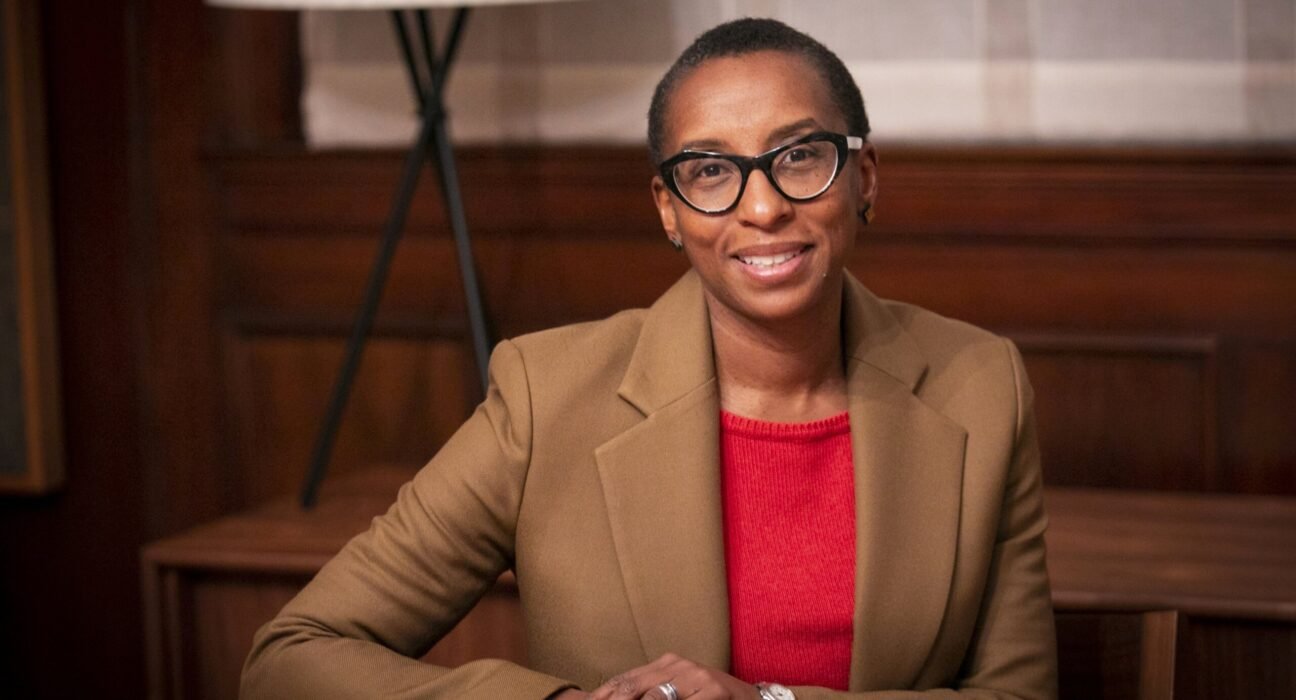Harvard President’s Resignation Sheds Light on Challenges Faced by Black Women Leaders

In a surprising turn of events, Harvard President Claudine Gay resigned on Tuesday, leaving behind a trail of allegations and speculation. The circumstances surrounding her departure beg the question: Is this an isolated incident or a symptom of a larger, systemic issue?
Gay’s exit, amidst accusations seemingly inconsistent with Harvard’s stringent vetting process, brings to the forefront a deeper narrative concerning the unique challenges Black women encounter in leadership roles.
This incident is not merely about an individual; it signifies the broader landscape that Black women navigate when occupying positions of power.
Navigating Leadership Challenges: A Reality for Black Women
In the professional journeys of Black women leaders like Claudine Gay and former Walgreens Boots Alliance CEO Rosalind “Roz” Brewer, a recurring theme emerges – the “glass cliff.” Despite reaching the pinnacle of their careers, they face a workplace culture that scrutinizes their every move, often leaving them without support during critical moments.
This pattern mirrors the “Pet to Threat” phenomenon, where Black women are initially praised for their accomplishments but later encounter heightened skepticism and resistance as they ascend in their roles.
Less than a year ago, Gay was celebrated as Harvard’s first Black president, a milestone applauded as a progressive stride. However, recent controversies suggest a shift from being a celebrated “pet” to a perceived “threat” within the institution.
Expert observations, such as those from Ella Bell Smith in organizational behavior, underscore the harsh judgment Black women leaders frequently face, fostering isolation and resistance in their leadership journeys.
Systemic Barriers and Daily Microaggressions
The journey of Black women in leadership is further complicated by systemic biases. Social psychologist Robert Livingston highlights the consistent need for Black women to prove their worth in environments that undervalue and overscrutinize them.
Daily microaggressions and biases compound the challenges faced by Black women leaders, making their rightful place at the table feel more like a battleground than an honor.
Data Tells a Story: Black Women Leaders Frequently Undermined
The data paints a compelling picture that cannot be ignored. Despite representing a significant portion of the population, Black women held a disproportionately small percentage of C-level positions in 2018. Research from Lean In underscores the stark reality: Black women are often undermined in the workplace.
This numerical disparity reflects invisible barriers hindering the advancement and retention of Black women in corporate America, aligning with the growing trend of Black women entrepreneurs.
Entrepreneurship as a Response to Systemic Exclusion
The rise of Black women entrepreneurs isn’t merely a response to new opportunities but a necessary pivot against systemic barriers in traditional roles. Tosh Ernest from JPMorgan Chase observes that many Black women choose entrepreneurship not solely for opportunity but as a means of survival against systemic exclusion.
This trend raises a critical question: Are Black women leaving corporate roles not out of choice but out of necessity?
The departure of numerous Black women leaders from the workforce, coupled with the increasing number entering entrepreneurship, underscores the urgent need for a reevaluation of how organizations support and nurture Black women leaders.
It is insufficient to place Black women in positions of power; genuine change lies in reshaping corporate cultures to support their growth, honor their contributions, and recognize their unique challenges.
As we reflect on these realities, it is imperative to ask: What steps can be taken to overturn these tables rather than merely offering a seat around them?













